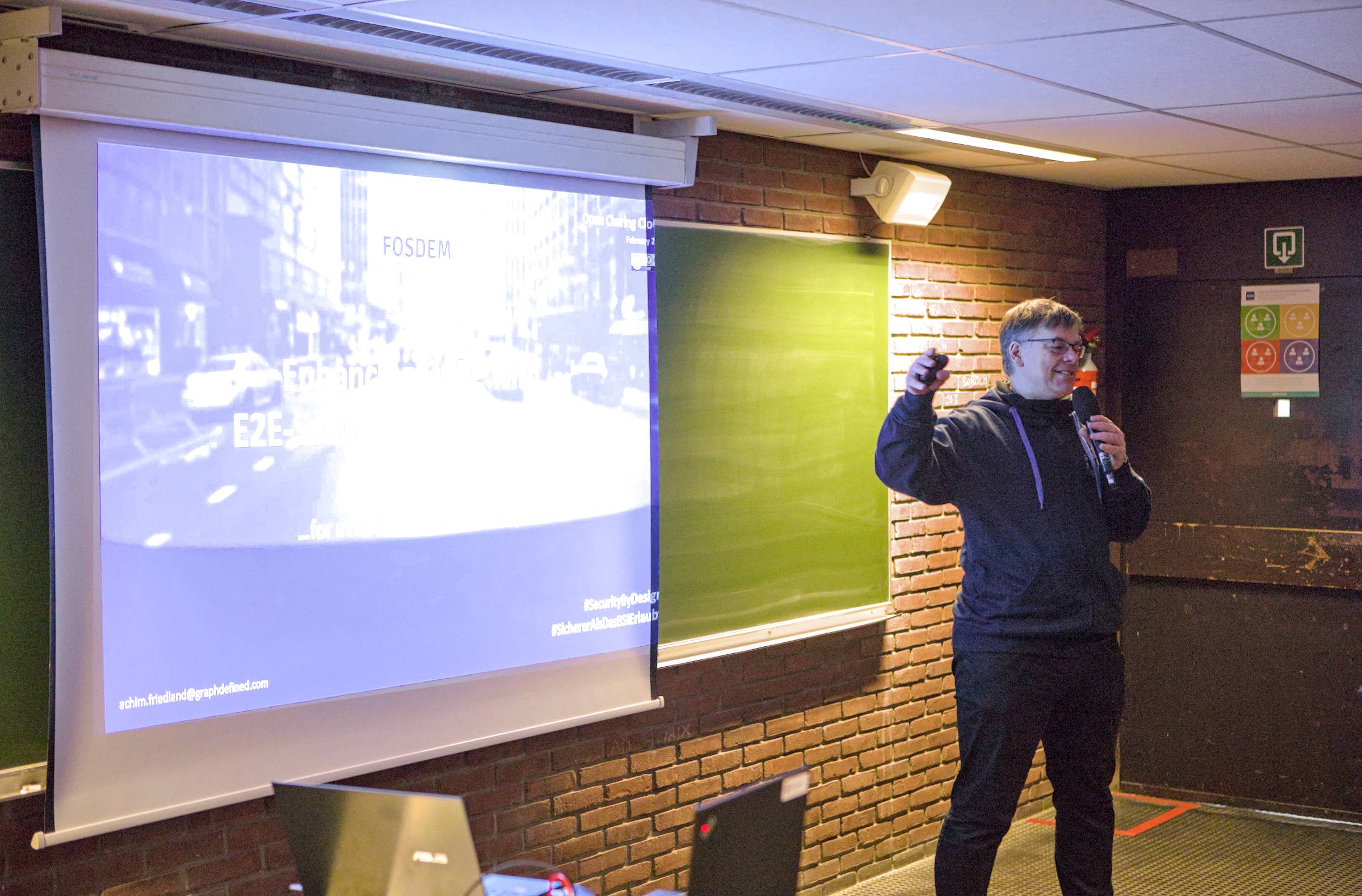FOSDEM 2024 Energy Devroom Recap: Enhancing OCPP with E2E-Security and Binary Data Streams for a more Secure Energy Ecosystem
At FOSDEM 2024, Achim Friedland of GraphDefined delivered a session titled “Enhancing OCPP with E2E-Security and Binary Data Streams for a more Secure Energy Ecosystem” in the Energy Devroom (video follows below). The talk shed light on critical aspects of securing energy infrastructure, particularly in the realm of electric vehicle (EV) charging stations.
Understanding the Challenge
Friedland began by addressing the evolving landscape of EV charging infrastructure, noting the transition from single charging stations to complex networks with multiple stations at one location. This shift necessitates efficient communication channels between stations and backend systems while ensuring compliance with stringent safety and security regulations.
Identifying Security Risks
One of the key concerns highlighted was the duplication of connections between charging stations and backend systems. This duplication not only presents design flaws but also opens avenues for security vulnerabilities, including potential man-in-the-middle attacks. Moreover, the involvement of third-party analytics companies further complicates the security landscape, raising concerns about data integrity and unauthorized access.
Proposed Solutions
Friedland proposed several solutions to address these security challenges. These include adapting the Open Charge Point Protocol (OCPP) to provide better routing information, implementing digital signatures for end-to-end security, and considering the use of binary data streams to enhance network security. By incorporating these measures, the aim is to establish a more robust and secure energy ecosystem.
Use Cases for Enhanced Security
The session also delved into various use cases demonstrating the practical applications of enhanced security measures. These included regulated messaging from energy providers, anonymous payment methods for EV charging, and improved monitoring capabilities for charging station operators. Each use case underscored the importance of security in enabling the seamless and secure operation of energy infrastructure.
Call to Action
Friedland concluded the session with a call to action, urging industry stakeholders to collaborate in addressing these security challenges. He emphasized the importance of collective effort in driving innovation and implementing solutions that safeguard the integrity and security of energy infrastructure. Attendees were encouraged to contribute to the Open Charge Point Protocol and become active members of the open charging community to collectively advance energy security initiatives.
